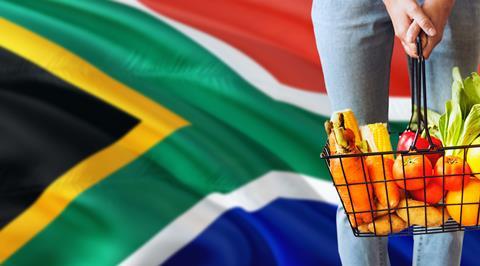South Africa is known as an important international supplier of fresh produce, but it also has a large local consumer market

A new probe in the distribution and marketing of fresh produce in South Africa will focus attention on the reasons for steep increases in fresh produce prices, while also focusing on the behaviour of growers and retailers.
South Africa’s competition watchdog is set to investigate farmers and retailers in the country as food prices continue to rise at the fastest rate since 2009.
The investigation will include the possibility of uncompetitive behaviour and collusion in the supply chain, including the role of farmers, retailers, and exporters, and how this affects prices.
The focus will reportedly be on apples, bananas, oranges and other citrus, stonefruit, pears, avocados, grapes and nuts, along with vegetables such as potatoes, onions, tomatoes, sweetcorn, carrots and cabbage.
According to the Competition Commission’s terms of reference for the inquiry, which was gazetted on Tuesday, the investigation will “consider if adverse effects are present in the fresh produce value chain arising from any feature or combination of features that impedes, restricts or distorts competition”.
The inquiry may take around 18 months.
One of the areas of concern that the Commission has flagged is the issue of concentration. A previous study by the Commission found that while large farms made up just 6.5 per cent of all production in South Africa, they accounted for 67 per cent of total income in 2017/18.
The number of farms dropped from 58,000 in 1993 to just over 40,000 in 2017, representing a decline of 31 per cent. KwaZulu-Natal, Mpumalanga and Limpopo saw the largest declines.
Commentators pointed out that the period immediately after the deregulation of the major South African export industries, namely deciduous fruit and citrus, during the early parts of the first decade of 2000, resulted in many smaller growers going out of business.
At the same time their farms were incorporated in bigger fruit farming businesses. The high cost of production in delivering fruit to the local and export markets, plainly dictated against smaller units and economies of scale.
It has also been highlighted that those fruit sectors are huge employers in South Africa and have sustained growth in recent years which increased job opportunities that cannot be achieve in smaller farming enterprises
The Commission said its previous research into food prices “consistently highlighted that the sharp decline in the number of commercial farms may be indicative of the difficulties smaller farmers face in reaching the necessary economies of scale to decrease costs and maintain profitability”.
It had previously noted that larger players could exert market power on smaller players, and that it hurt transformation of the sector, as new entrants including black farmers “struggle to become established and sustainable without entering at scale”.
“In light of the public comments and further stakeholder engagements, it has become apparent that the interaction of particular retailers, and to some extent end consumers, cannot be excluded from the consideration in the inquiry,” the Commission stated. ”In the same vein, the dynamics of the fresh produce processing markets cannot be excluded from the inquiry.”



